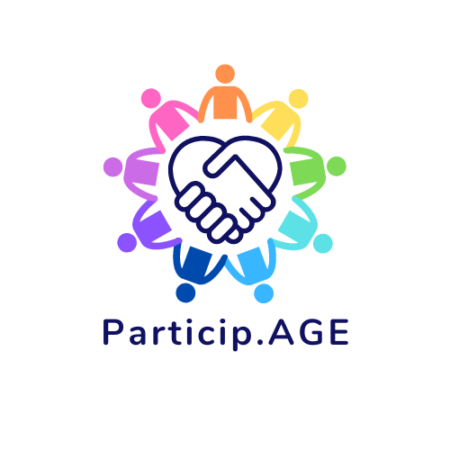Particip.AGE
 Supporting community participation and social inclusion of Ageing People with Intellectual Disabilities
Supporting community participation and social inclusion of Ageing People with Intellectual Disabilities
The Project
Particip.AGE is an Erasmus + funded project with the aim of supporting community participation and social inclusion of Ageing People with Intellectual Disabilities.
Background
Today, People with Intellectual Disabilities are living far longer than previous generations due to advances in medicine, rehabilitation, technology, etc. As a consequence, there is an increased likelihood of secondary medical conditions to ageing and/or to an individual’s particular disability. Ageing people with intellectual disabilities experience a high rate of medical, functional, and psychosocial complications and/or changes about 20-25 years sooner compared to aging individuals without disabilities. Health, functional, and psychosocial changes not only impact the individual but the family as well, adding emotional and financial stress. The same applies to people with intellectual disabilities. Data highlight that this specific target group is facing a double vulnerability: early ageing and intellectual disability. And this exposes them to suffer the combined effect, with a negative impact on their social inclusion, health, quality of life, etc. Their early aging puts them in the position to requires more and more support and care in the activities of everyday life.
Objectives
Main Objective:
-
Enhanced community and social inclusion of Ageing People with Intellectual Disabilities.
Specific Objectives:
-
Supported rights of ageing people with intellectual disabilities;
-
Enhanced competences of service providers’ staff to support ageing people with intellectual disabilities;
-
Reduced barriers for ageing people with intellectual disabilities’ social inclusion;
-
Enhanced inclusive approach of community towards ageing people with intellectual disabilities.
Project Results and Resources
- Stakeholder Analysis Report
- Collection of Case Studies on the support for social inclusion of Ageing People with Intellectual Disabilities
- Collection of Good Practices on the support for social inclusion of Ageing People with Disabilities
- Particip.AGE Project Study with Policy Recommendations
- Learning objectives of the training for staff
- Learning objectives of the training for service users
- Particip.AGE Project Platform with embedded training programs for staff and service users
Partners
The project is led by EPR and implemented together with 5 organisations including:
- UNI Galway (Ireland)
- INTRAS Foundation (Spain)
- Mariaberg (Germany)
- Panagia Eleousa (Greece)
- Medea (Italy)
Contacts
Panita Ball, Projects and Events Officer at EPR: pball@epr.eu
Benedetta Pesce, Project and Events Officer at EPR: bpesce@epr.eu
Follow us!



Funded by the European Union. Views and opinions expressed are however those of the author(s) only and do not necessarily reflect those of the European Union or the European Education and Culture Executive Agency (EACEA). Neither the European Union nor EACEA can be held responsible for them.



 This website received support from the EPR framework partnership agreement with the European Commission, DG Employment, Social Affairs and Inclusion for 2018-2022 from the EU Programme for Employment and Social Innovation (EaSI). For further information please consult:
This website received support from the EPR framework partnership agreement with the European Commission, DG Employment, Social Affairs and Inclusion for 2018-2022 from the EU Programme for Employment and Social Innovation (EaSI). For further information please consult: